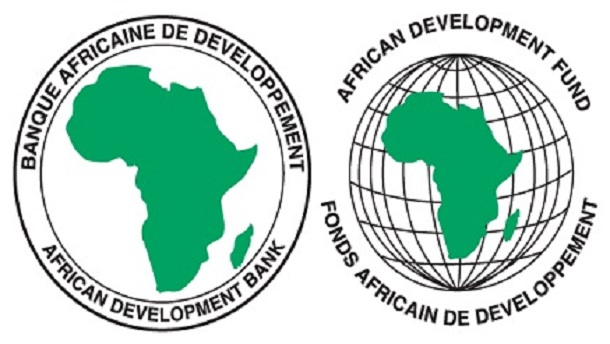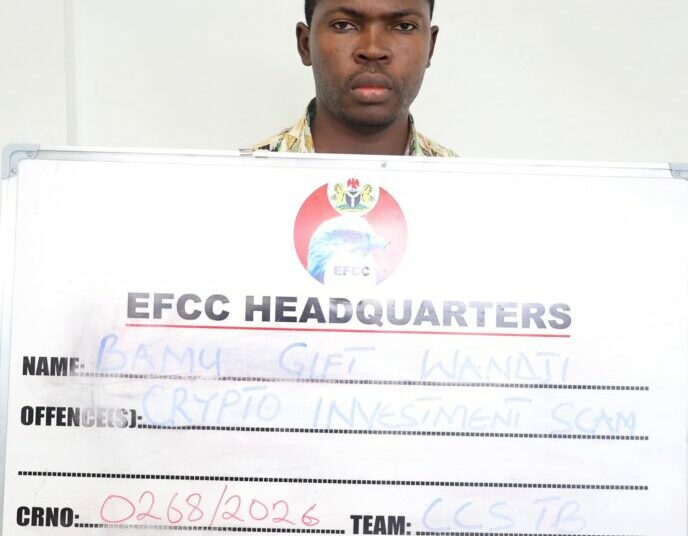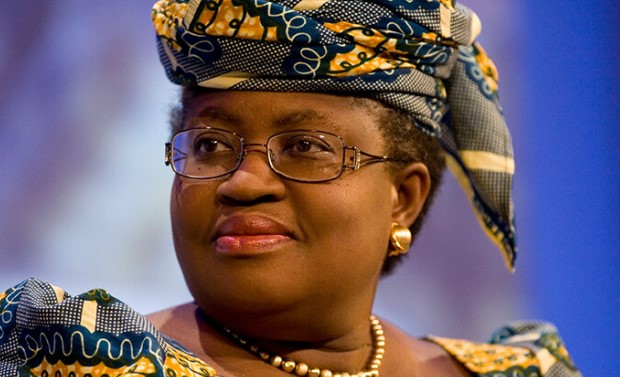News
AfDB Approves New Financing Program for Energy Providers in sub-Saharan Africa

The Board of Directors of the African Development Bank Group has approved an innovative multinational financing program for Distributed Energy Service Companies (DESCOs), which would see 900,000 households in sub-Saharan Africa – about 4.5 million people – gain access to solar power by 2025.
The DESCOs Financing Program promotes securitization financing techniques to address barriers to accessing finance for DESCOs, while supporting their growth and expansion into existing and new markets. The program will also facilitate local currency financing for DESCOs and provide local lenders with risk mitigation instruments to support them.
Elaborating on the program, Wale Shonibare, the Bank’s Acting Vice-President for Power, Energy, Climate Change, and Green Growth said the Bank will provide critical technical guidance and credit enhancement to DESCOs and local financial intermediaries.
“Accelerating access to universal, affordable, reliable, sustainable and modern energy for underserved populations requires innovative financing solutions. Innovations such as receivables-backed financing structures provided by the program are vital in the Bank’s efforts to unlock private sector participation and local currency financing for the energy sector,” Shonibare said.
The program will contribute to installation of an estimated 45 MW of distributed solar PV which will provide clean energy access for 900,000 households by 2025 (4.5 million people). It will also create approximately 6,000 new direct jobs, mainly for the youth, and contribute to avoidance of nearly 37.08 kilotons of CO2eq emissions per year.
The design of the program supports the Bank’s Financial Sector Development Policy and Strategy and Industrialization Strategy Flagship program to grow liquid and effective capital markets, and support innovative financing mechanisms.
Stefan Nalletamby, the Bank’s Director for Financial Sector Development, said the program would help build capacity within DESCOs and local financial intermediaries in executing securitization structures and other innovative frameworks for accessing finance.
“It will also promote financial inclusion by availing consumer financing to customers in rural areas, building credit history, and encouraging the uptake of mobile payment solutions,” Nalletamby added.
The board approval follows the approval of a EUR 50 million guarantee facility and EUR 6 million technical assistance grant by the European Fund for Sustainable Development (part of the European External Investment Plan).
“Solar home systems present commercially viable, climate resilient, and modern solutions to provide clean energy access to off-grid populations in Sub-Saharan Africa. DESCOs have seen extensive growth owing to the rapid proliferation of mobile banking and pay-as you-go (“PAYGO”) technologies that allow low-income customers to pay off their purchases over an extended period of time.
This program will enhance the impact of DESCOs by enabling them to access financing that is tailored to their operations. It is also a great example of collaboration between the European Commission and the African Development Bank,” said Dr. Daniel Schroth, the Bank’s Acting Director for Renewable Energy and Efficiency.
News
NSCDC Hands over Fake Crypto Currency Trader to EFCC

Economic and Financial Crimes Commission (EFCC), at the weekend received Bamu Gift Wandji, a suspected operator of Polyfarm, a fake crypto-currency investment platform.

The suspect, Bamu Gift Wandji, was arrested by the Nigerian Security and Civil Defence Corps (NSCDC) in Gwagwalada Area Council of Abuja on January 12, 2026, for running a fraudulent investment scheme and was handed to the Commission for investigation.
Investigation by the EFCC revealed that the suspect created a fraudulent crypto investment platform called Polyfarm, where he allegedly lured innocent Nigerians to invest in Polygon, a crypto token that attracts high returns.
Investigation further revealed that he also deceived the public that his project, Polyfarm, has its native token called “polyfarm coin” which he sold to the public.
In his bid to promote the fraudulent scheme, the suspect had promoted the scheme on social media platforms, including WhatsApp, X (formally Twitter) and Telegram. He also conducted seminars in some major cities in Nigeria, including Kaduna, Lagos, Port harcourt and Abuja, where he described the scheme as a life-changing scheme.
Further investigation revealed that in October, 2025, subscribers who could not access their funds were informed by the suspect that the site was attacked by Lazarus group, a notorious cyber attacking group linked to North Korea.
Further investigations showed that the platform Polyfarm is not registered and not licensed with the Security and Exchange Commission (SEC) to carry out crypto transactions in Nigeria. Also, no investment happened with subscribers’ funds and that the suspect used funds paid by subscribers to pay others in the name of profit.
Investigation also revealed that native coin, polyfarm coin, was never listed on coin market cap and that the suspect sold worthless coins to the general public.
Contrary to the claim of the suspect that his platform was attacked, EFCC’s investigations revealed that the platform was never attacked or hacked by anyone and that the suspect withdrew investors funds and utilised the same for his personal gains.
The EFFC said the suspect will be charged to court upon conclusion of investigations.
News
Alakija’s Flourish Africa Provides N300m Grants for Women Entrepreneurs

Flourish Africa, a women-focused empowerment initiative founded by Apostle Folorunsho Alakija, has rolled out N300m in grants for women entrepreneurs across the country, following a rigorous national training and business pitch process.

Apostle Folorunsho Alakija,
The grant announcement was made at Flourish Africa’s ninth annual conference in Lagos, held under the theme ‘She Champions’, which brought together entrepreneurs, regulators, development partners, and private-sector leaders.
The grants were awarded under the fourth cycle of the Flourish Africa Grants Programme, during which 506 women entrepreneurs underwent intensive business training.
Out of this number, 409 participants submitted business plans, 200 advanced to the pitch stage, and 100 businesses were eventually selected to receive N3m each after evaluation by an independent panel of judges.
According to Alakija, founder of Flourish Africa, the structure of the programme was deliberately designed to emphasise merit, preparedness, and accountability among beneficiaries.
“We designed this process to be rigorous because Nigerian women entrepreneurs are capable of building serious businesses. Out of 506 women trained, only 100 emerged for funding. That discipline matters because access to capital must be matched with capacity, structure, and accountability if businesses are to survive and scale,” Alakija was quoted as saying, according to a statement on Sunday.
The organisation maintained that Nigeria has one of the highest rates of female entrepreneurship globally, yet many women-owned businesses continue to face challenges in accessing formal finance and growth opportunities.
Flourish Africa’s intervention, it was said, seeks to bridge this gap by combining skills development with practical exposure to investment and governance standards.
The selected businesses cut across sectors such as manufacturing, agribusiness, food processing, fashion, beauty, and services.
Judges involved in the process reportedly observed improved presentation quality, clearer business models, and stronger market articulation among participants compared to previous cohorts, while also highlighting the need for deeper financial literacy.
Beyond funding, the programme places strong emphasis on business governance, record-keeping, and scalability, with the aim of preparing participants for engagement with lenders, investors, and institutional markets.
“Women are already driving Nigeria’s informal and small-business economy. What Flourish Africa is doing is formalising that strength by equipping women with skills, governance, and funding. When women succeed in business, they reinvest in their families and communities, creating a multiplier effect that drives inclusive economic growth,” Alakija added.
As economic pressures continue to weigh on small businesses nationwide, initiatives aimed at strengthening sustainable women-led enterprises are expected to play a growing role in job creation and local economic development. Under the scheme, each beneficiary is expected to get N3m each
News
Okonjo-Iweala Urges Nigeria to Shift from Importing Tech to Local Manufacturing

Dr. Ngozi Okonjo-Iweala, Director-General of the World Trade Organisation, WTO, has urged Nigeria to move decisively beyond importing technology to manufacturing it locally, warning that sustained dependence on foreign technology weakens the country’s industrial base and constrains job creation in the digital economy.

Speaking at Ahmadu Bello University, ABU, Zaria, Okonjo-Iweala said the current disruption of the global order, driven by technology, geopolitics and climate pressures, presents both serious risks and unprecedented opportunities for Nigeria and Africa, if they are prepared to act strategically.
“It is always a pleasure to come home to Nigeria, but it is particularly special to be here at one of the country’s most important seats of learning,” she said, stressing that universities such as ABU must remain central to Africa’s technological, industrial and economic transformation.
Tracing Nigeria’s post-independence journey, Okonjo-Iweala recalled that at independence in 1960, the country had only one degree-awarding institution, making the rapid expansion of universities a critical pillar of nation-building.
She noted that institutions such as ABU laid the foundation for Nigeria’s scientific, technological and entrepreneurial capacity.
Founded in 1962 as the University of Northern Nigeria, ABU has evolved into a multidisciplinary institution producing graduates across engineering, medicine, sciences, ICT, public administration and the humanities.
“Research conducted here has advanced the frontier of knowledge and offered practical solutions to real-world problems, from animal feed innovations during dry seasons to wind power generation in rural areas,” she said.
Turning to global trends, the WTO chief identified technology, particularly the internet and artificial intelligence, AI, as one of the most disruptive forces reshaping trade, production and employment worldwide.
“The technological shift we are experiencing has made it easier to communicate, produce and trade, but not everyone has shared equally in the gains,” she said, warning that automation and AI could deepen inequality if not properly managed.
She stressed that multilateral institutions and global trade rules must evolve to respond to emerging technologies such as AI and quantum computing.
“We need a new kind of multilateralism, one that is nimble, responsive and capable of addressing new global opportunities,” she said.
Okonjo-Iweala said Africa stands to benefit from what the WTO now describes as “re-globalisation”, the diversification of global supply chains away from over-dependence on a few countries.
She identified opportunities in labour-intensive manufacturing, critical minerals processing, renewable energy technology, pharmaceuticals, agro-processing and electric vehicle, EV, supply chains.
“Africa has the capacity to process its critical minerals all the way to EV battery manufacturing,” she said, pointing to Nigeria’s emerging lithium processing investments and vast renewable energy potential.
Reinforcing her call for local technology production, she said Nigeria must stop importing technologies it can manufacture domestically.
“Instead of importing solar panels, we should be manufacturing them here. That is how we create jobs, build resilience and grow our economy,” she said.
Okonjo-Iweala warned that Nigeria’s projected economic growth of 4.4 percent remains insufficient once population growth is factored in, calling for sustained growth of 6 to 7 per cent driven by productivity, technology and value addition.
She said achieving this would require strong digital infrastructure, skills development and innovation-friendly policies, alongside full implementation of the African Continental Free Trade Agreement, AfCFTA.
“Technology-enabled trade and deeper regional integration could increase intra-African trade by up to 45 per cent and lift millions of people out of poverty,” she said.
With Africa projected to account for about 25 per cent of the global working-age population by 2050, Okonjo-Iweala described Nigeria’s young population as one of its greatest technology assets.
“On an ageing planet, Africa’s youth represent the world’s future talent pool,” she said, urging universities, policymakers and the private sector to better align education, innovation and industrial strategy.
She, therefore, called for stronger collaboration between academia, industry and government to ensure Nigeria does not miss the opportunities created by global technological disruption.
“This country has what it takes. What we need is urgency, coordination and the courage to invest in our people and our ideas,” Okonjo-Iweala said.

 General News2 days ago
General News2 days agoNigeria’s Data Privacy Economy Hits ₦16.2bn – NDPC Commissioner

 Telecom2 days ago
Telecom2 days agoAirtel Africa Records $586m Rise in Profit on FX Gains, Tariff Hike

 Telecom2 days ago
Telecom2 days agoAfrica’s AI Guru Abodunrin Charts Path to Continent’s Digital Dominance

 News2 days ago
News2 days agoOkonjo-Iweala Urges Nigeria to Shift from Importing Tech to Local Manufacturing

 E-Financial2 days ago
E-Financial2 days agoFitch Downgrades Afreximbank to ‘BB+’/Stable Amid Concerns Over Ghana’s Debt

 E-Financial2 days ago
E-Financial2 days agoEFCC Seeks Suspension, Prosecution of Banks for Aiding N162Bn Crypto Scams

 Telecom2 days ago
Telecom2 days agoNCC Unveils Q4 2025 Network Performance Report, Pledges Transparency and Accountability

 Telecom12 hours ago
Telecom12 hours agoTelecom Operators Invest Over $1Bn on 2,850 New Sites in 2025 – NCC























